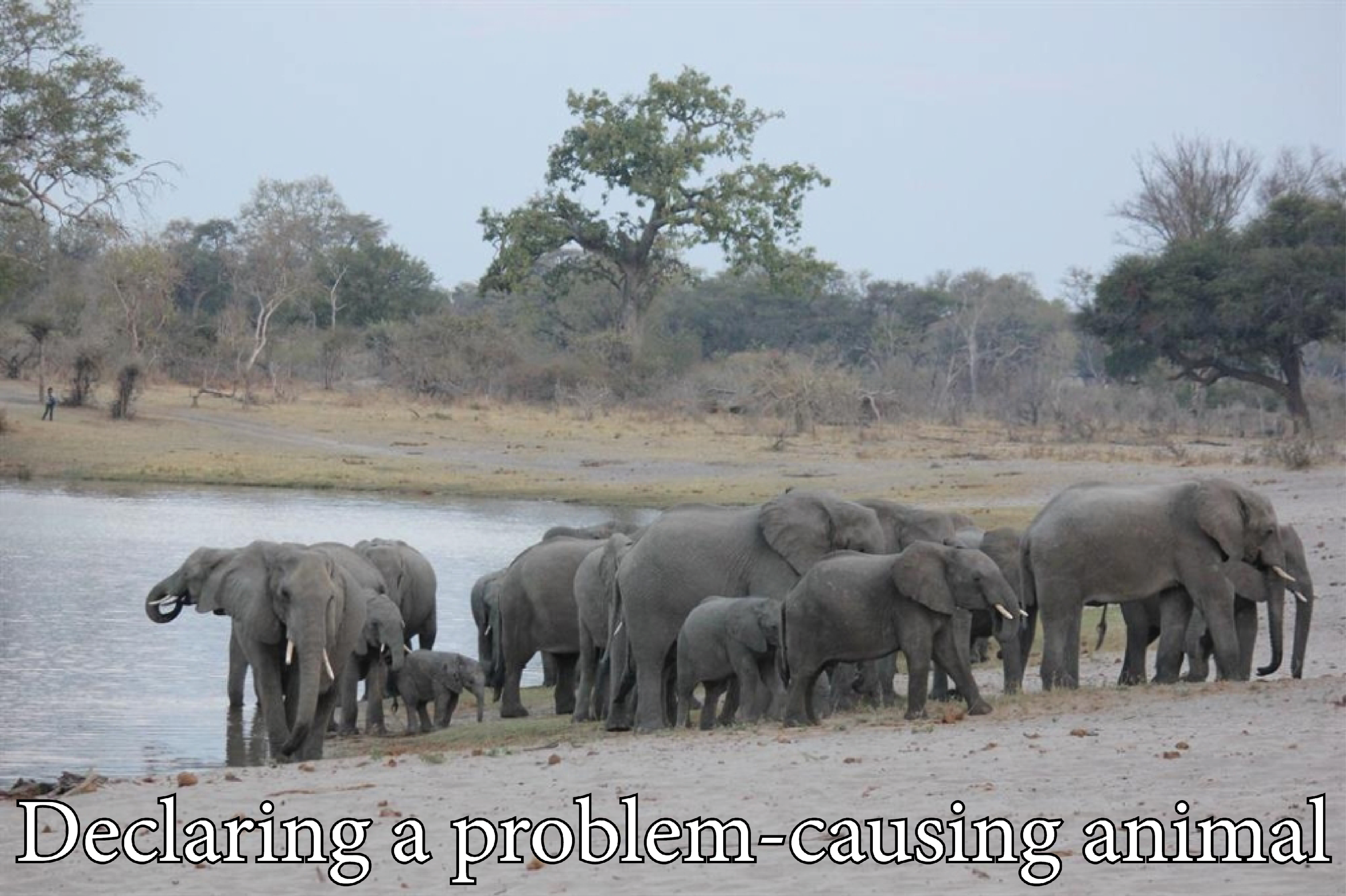In Namibia, managing human-wildlife conflict – especially with problem-causing animals – is a vital part of wildlife management.
According to the Namibia Professional Hunting Association (Napha), the environment ministry has policies outlined in its guidelines for management of conservancies, standard operating procedures and human-wildlife conflict revised policy, which provide a structured approach to handling this conflict. These documents are available on the ministry’s official website.
Napha said the process of declaring an animal as problem-causing starts with identifying those that pose a continuous threat to human safety or property. This includes animals that have attacked humans, killed livestock or shown behaviour indicating they might strike again.
“When such cases are reported, a swift and well-coordinated response is essential to prevent further incidents.”
When a complaint is received from the rural community, a game warden conducts an inspection and submits a report to the chief warden, the association said. The chief warden then forwards the report to the deputy director of the region, who then passes it to the director of wildlife and national parks.
The submission continues to the deputy executive director of the department of natural resource management, the executive director of the ministry, the deputy minister, and finally the minister of environment, it noted.
“The minister reviews the report and decides whether to approve or decline the request for the animal’s removal based on its merits.” Napha said this thorough review process ensures well-considered and justifiable decisions.
Crucial role
“Once an animal is declared problem-causing and its removal is approved by the minister, professional hunters play a crucial role in the process,” the association said. It explained that these hunters, accompanied by their clients, are called upon to address the issue.
Napha said their involvement ensures the task is carried out effectively and ethically, following the ministry’s guidelines. The resources derived from these animals are distributed within the community, supporting livelihoods and enhancing food security.
Additionally, the financial contributions from trophy hunting of problem-causing animals benefit the Game Products Trust Fund.
“This fund supports various conservation and community projects, ensuring that the economic benefits of hunting contribute to the sustainable management of wildlife and the well-being of rural communities,” Napha said.
It added that recent references on social media have mistakenly cited a different section of the legislation regarding problem-causing species.
“It is important to note that these references are not applicable to problem-causing animals, defined as individual wild animals that harm, destroy or damage human life or property.”



